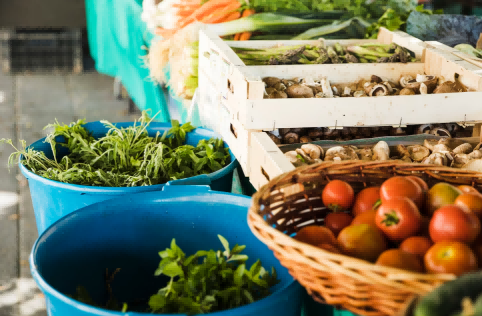 Import News
Import News
 21-08-2023
21-08-2023
The Philippines, an archipelago in Southeast Asia, is renowned for its agricultural diversity and fertile land. Despite being a major agricultural producer, the country still relies on certain agricultural products' imports to meet the demands of its growing population and support its economy. In this article, Tendata will explore the main agricultural products that the Philippines imports and delve into the country's current import status in the agricultural sector.

The Philippines' Agricultural Export and Philippines Imports Status:
The Philippines has a thriving agricultural sector, with significant exports of products such as coconut oil, bananas, pineapple, and sugar. However, due to various factors like climate conditions, limited arable land, and fluctuations in domestic production, the country also depends on imports to maintain a stable supply of certain agricultural goods.
· Rice Imports:
Rice is a staple food in the Philippines, and it is one of the top agricultural products that the country imports. Despite being an agricultural country, the Philippines faces challenges in achieving self-sufficiency in rice production. As a result, the government engages in rice importation to ensure a steady supply and stabilize prices.
Also Read: Quest Global Rice Importers
· Wheat Imports:
Wheat is another essential agricultural product that the Philippines imports. It is a primary ingredient in bread and other baked goods, which are widely consumed by Filipinos. Due to limited wheat production domestically, the Philippines relies on imports to meet its demand for this staple commodity.
Also Read: Wheat Import Scenario: Nourishing Global Trade
· Corn Imports:
Corn is a crucial agricultural commodity in the Philippines, used in animal feed and various food products. The country's corn production may fluctuate due to weather conditions and other factors, leading to the need for imports to bridge the gap between supply and demand.
Also Read: Corn Imports: Global Trade Trends
· Meat and Livestock Imports:
The Philippines imports various meat products and livestock to augment its domestic supply and meet the increasing demand for protein-rich foods. Pork, poultry, and beef are among the main meat products imported by the country.
· Vegetable and Fruit Imports:
Despite being a tropical country with abundant produce, the Philippines also imports certain vegetables and fruits to address seasonal shortages and satisfy consumer preferences. Products like onions, garlic, potatoes, apples, and oranges are commonly imported.
· Coffee Imports:
Coffee is a popular beverage in the Philippines, and the country imports coffee beans to supplement its domestic production. Coffee consumption has been steadily increasing, leading to a rise in coffee imports.
Also Read: 2022 Swiftest Decline in Coffee Exporters
· Edible Oils Imports:
The Philippines imports edible oils such as soybean oil and palm oil to meet the demand for cooking oil and other food applications.
Government Initiatives and Policies:
The Philippine government implements various policies to promote agricultural self-sufficiency and reduce the reliance on imports. These initiatives may include providing support to local farmers, enhancing agricultural technology, and promoting sustainable practices.
Conclusion:
The Philippines, despite being an agricultural powerhouse, relies on imports to ensure a stable supply of certain agricultural products. Rice, wheat, corn, meat, and various fruits and vegetables are among the key agricultural items imported by the country. To achieve long-term agricultural sustainability, the Philippine government continues to implement measures to support local farmers and boost domestic production. Understanding the dynamics of agricultural imports is crucial in maintaining food security and supporting the country's economy.
Another News
Latest News Released Today: Tendata Blogs
Other Trade Data References to Philippines Data:
1. How to Calculate Car Import Tax in the Philippines?
2. What Are the Key Challenges Faced by Exporter Philippines in Their International Trade Activities?
3. How Do Philippine Exporters to Ensure Efficient and Timely Delivery of Goods?
Category
Leave Message for Demo Request or Questions


 T-info
T-info T-discovery
T-discovery

 My
Tendata
My
Tendata Market Analysis
Market Analysis Customer
Development
Customer
Development Competitor
Monitoring
Competitor
Monitoring Customer Relationship
Customer Relationship




































































































































